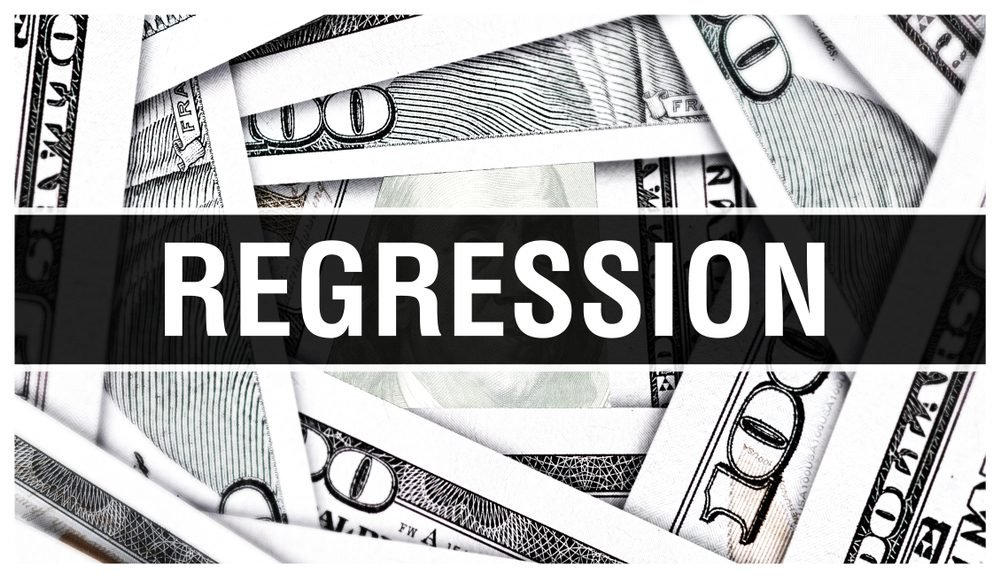Regression Basics For Financial Analysis
The best tool in the Financial analyst‘s tool kit is Regression analysis. This analysis uses statistical methods to estimate variables dependency between the dependent and independent variables to forecast the future of the relationship and the bond/ force between them.
Types of Regression Analysis
The three main types of regression carried out by the Financial Analyst are
• Linear Regression is used where the dependent and independent data sets have a linear relationship.
• Multiple Linear Regression where the dependent and independent data sets have multiple linear relationships.
• Non-Linear Regression where dependent and independent data sets have a non-linear relationship.
Regression analysis in finance
Regression analysis is applied in financial applications and is essential to the CAPM model. In CAPM it is used to determine the relationship between market risk premium and the expected asset returns. Budgeting, forecasting returns of securities dependent on different factors, the forecasting the performance of a business and such are immensely useful examples of regression analysis applications.
Regression analysis is used in most financial applications and used in various disciplines to determine relations, interdependency, and strength of the relationships when it comes to market conditions and such areas. If you are interested in knowing more about regression analysis you should do a financial analyst course where many such techniques are explored. Especially when you do your course at the reputed Imarticus Institute the practical applications of it are explored in your project work, assignments and case studies to improve your FA skills.
The essential skills for an Financial Analyst are
1. An accounting qualification
A career in finance has many standards and procedures to be learnt along with commercial best practices. You will need a formal finance and accounting degree. Postgraduates are not uncommon.
2. Interpersonal skills
Crunching numbers with ease and being able to maintain excellent client relations means excellence in your career will depend on your client relationships and communicative skills.
3. Ability to communicate
If you’ve visited the accountant and come back understanding nothing you are not alone. The FAA must necessarily have the ability to communicate the results and foresight in layman's language.
4. Financial Reporting
While reporting skills are essential, taking it to superb levels the FA will need excellent presentation skills in Microsoft Excel and presentation suites.
5. Analytical ability
Lateral thinking, analysis of situations and options, drawing conclusions etc need sharp business acumen, domain knowledge, real-time KPI information and the ability to use analytical skills on your feet.
6. Problem-solving attitude
Modern times require a good attitude to resolving conflicts and client problems. In conjunction with client satisfaction, it means a huge boost to your FA career.
7. Knowledge of financial software
Digitization, automation and rapid technological advancements mean the FA needs to be constantly learning the latest software programs and using them to get forecasts for furthering the business. You will need predictive analysis, SAP, Oracle and accounts payable automation programs among many others.
8. Management experience
Team management, leadership and playing the best liaison between management and the business areas the FAs career depends heavily on successful experiences.
9. Commercial acumen
Superb skills in financial analysis techniques, regression analysis, and being able to extract the relationships between the marketplace, fiscal behaviour, budgets and performance are essential to the FA.
10. Innovative outlook
Though there be set routines, techniques and tech systems, an FA who is innovative will always get the best of all fixed parameters.
Some payout statistics:
According to roberthalf.com the Financial analyst in 2017 had a median of 84,300 USD as salary. The range of lowest-paid to best-paid was 64, 390 to 114,980 USD. Your certification like the CFA certification improves your salary proportionately. Personable attitude also scores high as an attribute for success. The FAs job was rated a 15 in best business jobs and 79 among all 100 best jobs reviewed.
Conclusion:
Well, becoming a financial analyst seems to be a promising career path with unending scope since financial analysts continue to remain in demand as long as money exists. If you want to make a difference at the start of your career then do the Financial analyst course at the reputed Imarticus Learning. The benefits far outweigh the costs and it makes perfect logic from the figures cited above.
Why wait? Enrol today!











